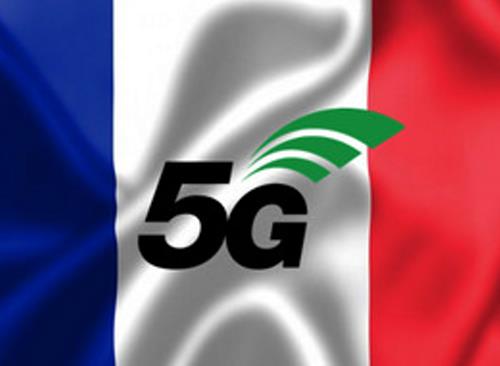French regulator Arcep has started consulting on a draft procedure setting out the rules for the forthcoming 5G auction of 3.4-3.8 GHz spectrum, according Telecompaper. The public consultation, which will run until 04 September, will enable Arcep to finalise the terms of the award, ahead of the auction in the autumn. Meanwhile, the government will receive separate advice by the end of September on the reserve price for the available frequencies. The procedure will enable the country’s four network operators to acquire up to 310 MHz of spectrum from 2020, under 15-year licences with a possible 5-year extension.
In a two-part tender process, operators will be able to apply for an initial chunk of spectrum at a fixed price and will then participate in an auction for the rest. The regulator is proposing that after the first phase each operator will have at least 40 MHz of spectrum, although this minimum could increase subject to consultation. The maximum by the end of the auction is set at 100 MHz per operator. The bidding process will enable participants to acquire frequencies divided in 10 MHz blocks. Once the amount of spectrum allocated to each winner is known, a new auction will be held to determine the position of the blocks on the band for each of the winners.
A minimum set of obligations will apply to all licence holders, in addition to optional commitments that operators will be asked to make during the first phase of the allocation procedure. The minimum set of obligations includes both coverage targets and a minimum level of service, defined by a speed of at least 240 Mbps. To achieve this speed, operators can use 3.4 – 3.8 GHz frequencies, or any other frequencies that they own, and must deliver it across at least 75 percent of their entire footprint by 2022, rising to 100 percent by 2030.
Each operator will also be required to launch 5G services in at least two cities before the end of 2020 and have 3,000 sites in operation by 2022, rising to 8,000 in 2024 and 12,000 in 2025. An additional requirement will be set to ensure a significant deployment in sparsely populated areas. Subject to consultation, operators will need to have around 20 to 25 percent of the sites in operation in these locations, on top of the deployment targets set for the 2024-2025 period.
Obligations that apply specifically to the main roadways are also planned, in line with EU guidelines. Coverage of the country’s motorways (16,642 km) will need to be completed by 2025, with all main roadways (54,913 km) by 2027. These obligations include a connection speed of minimum 100 Mbps at each cell site by 2027.
In addition to the minimum coverage and service obligations set within the licences, Arcep is giving operators the option of making a series of commitments when submitting their application, in exchange for the blocks of spectrum available at a fixed price in the first phase of the auction. Among these commitments, which will become legally binding for licence holders, there is a proposed mechanism that will enable industry verticals to receive customised connectivity from operators under “reasonable conditions”.







